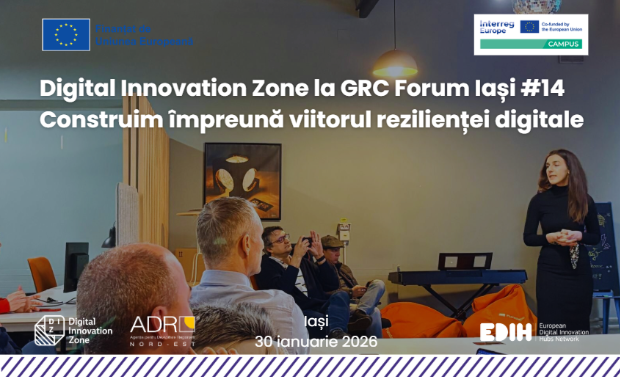
Digital Innovation Zone at GRC Forum Iași #14 – Building the Future of Digital Resilience Together
Edition #14 of the Governance, Risk Management & Compliance (GRC) Forum Iași, hosted atFab Lab Iași on Friday, January 30,
Digital campuses for European resilience
CAMPUS addresses digital resilience: the capacity of local and regional authorities (LRAs) to withstand, absorb and recover from disruptions caused by external digital threats or natural disasters, through the implementation of cybersecurity/resilience legislation, critical infrastructures and digital/cybersecurity skills.
The overall objective of CAMPUS is precisely to support partner territories in becoming more digitally resilient.

The overall objective of CAMPUS is to support partner territories to become more digitally resilient, taking into account the cross-cutting and multiple areas of cybersecurity.
CAMPUS starts from the hypothesis that the Digital Campus is a key tool for supporting European resilience, enabling local and regional authorities to create and strengthen an ecosystem that addresses the many current cyber challenges, in a complex regulatory, technological and geopolitical context.
CAMPUS brings together 10 partners from 7 countries, including 1 EU candidate country. They represent key policy actors: regional and local authorities, innovation agencies, digital innovation hubs and a university. The project approach is designed to move from territorial analysis to the identification and exchange of good practices, with the aim of linking challenges and policy solutions to achieve policy improvements.
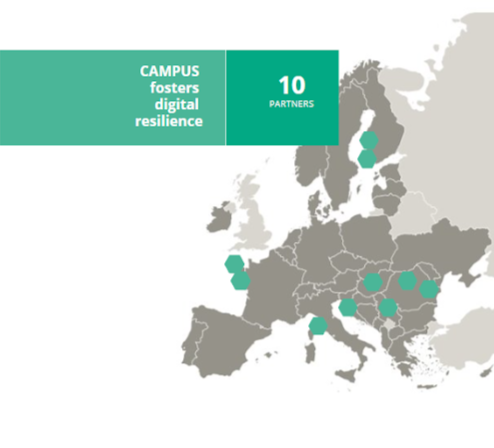
CAMPUS will make digital resilience a central element of regional development. By exchanging practices and adapting the Cyber Campus model, partners will improve policies that help local authorities, businesses and public services cope with digital disruptions. The project will strengthen cybersecurity skills, support the creation of regional digital campuses and integrate crisis mitigation into policy instruments. As a result, European regions will be better prepared for cyber threats and natural disasters, reducing risks and costs in the long term.
A working group with representatives from academia and companies was set up at the launch of the CAMPUS programme in Rennes, France, and participated in meetings with stakeholders and project partners. The agenda included the Brittany Campus presentation, sessions with local top actors in the field of cybersecurity (Inria, Cyberschool, IRISA & SequoIA, La French Tech, Pôle d’Excellence Cyber), as well as exchanges of best practices and discussions applied to the future of digital resilience. The central moment was the panel discussion with Orange Cyberdefense, where innovative solutions for strengthening cybersecurity at regional and European level were debated.
For official details and additional resources, the project is available on the Interreg Europe website: https://www.interregeurope.eu/campus

Edition #14 of the Governance, Risk Management & Compliance (GRC) Forum Iași, hosted atFab Lab Iași on Friday, January 30,
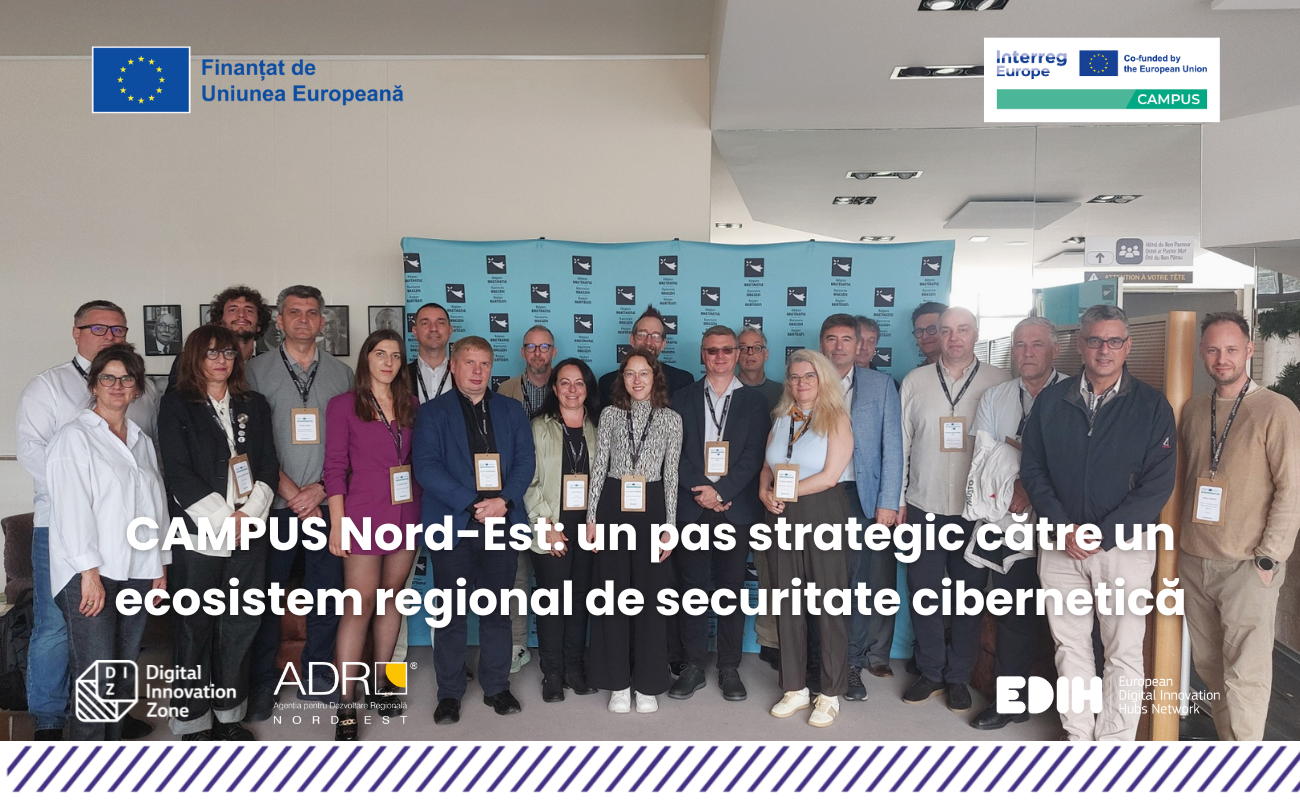
On 21 November 2025, at the Gheorghe Asachi Technical University of Iași, as part of #DIZisIT day, Digital Innovation Zone

The Brittany region is often described as France’s “Cyber Valley”, a unique ecosystem where 160+ companies, the Ministry of Defense,
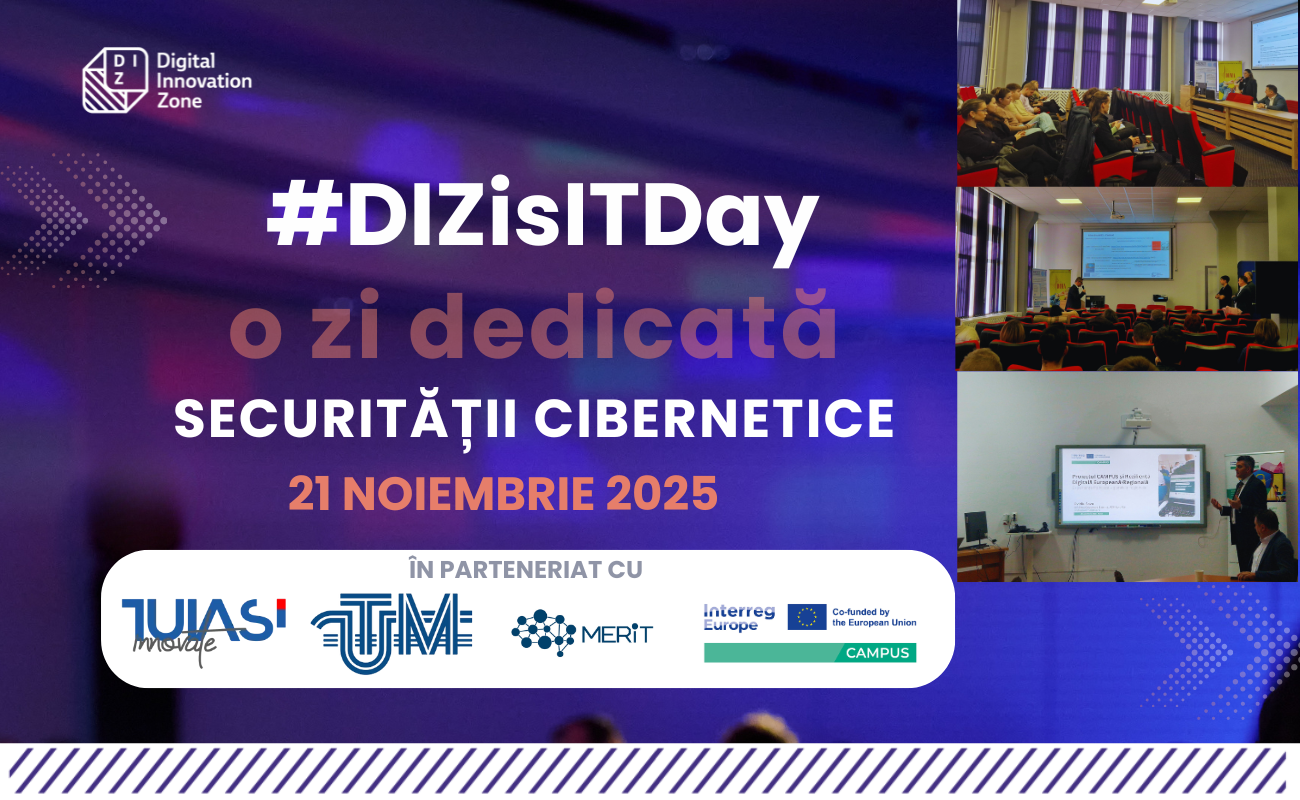
On Friday, 21 November 2025, the “Gheorghe Asachi” Technical University of Iași (TUIASI) hosted #DIZisITDay, an event dedicated to cybersecurity
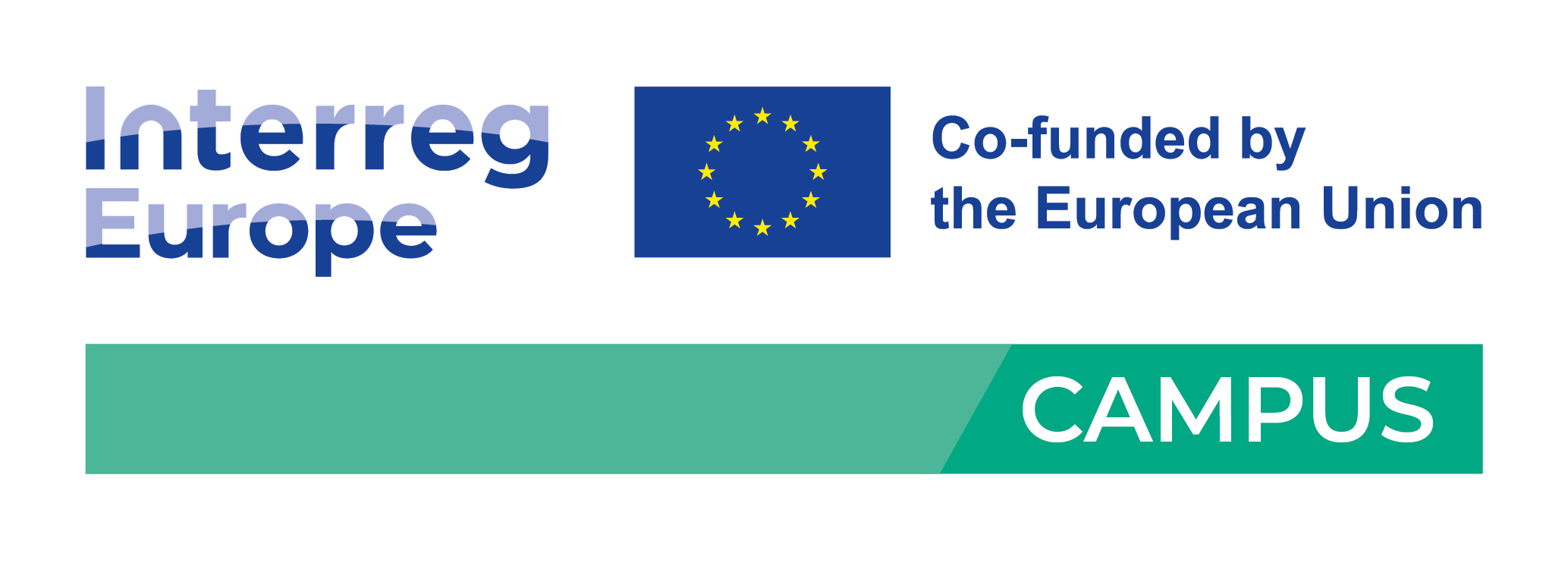
The CAMPUS project is implemented in the framework of the Interreg Europe programme and co-financed by the European Union.